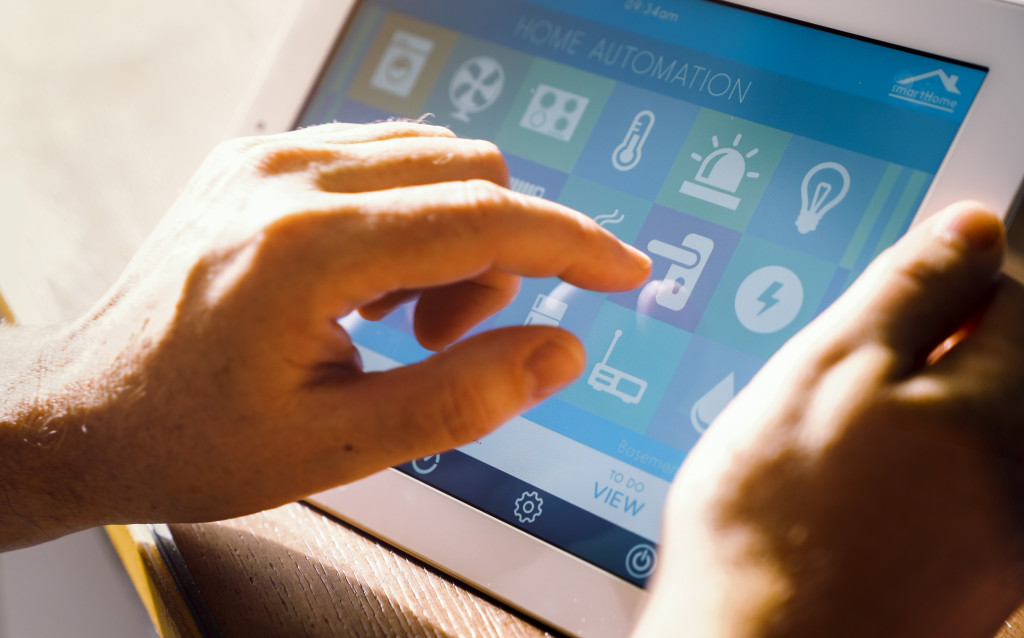As the world continues to become more modernized, it is inevitable to live with technology to help us with our daily tasks. Most of us have smartphones, laptops, and other similar devices. Another addition to the growing list of technologies in our lives is the smart home.
What Is a Smart Home?
Smart homes allow homeowners to control appliances and devices in their houses remotely using a mobile device. Imagine being able to turn on or turn off the lighting in your house without having to stand up and flip a switch. Imagine adjusting the temperature to make yourself more comfortable without turning on the air conditioner or heater. These are some features of a smart home. Simply put, most things in your house are remote-controlled.
A Brief History of the Smart Home
It is debatable whether remote-controlled appliances like our televisions are already the start of smart homes. If it is then, smart homes started way back in 1898 when Nikola Tesla invented the remote control. But it was between 1998 until the early 2000s, the popularity of smart homes began to attract more attention. During this time, there were more technologies and remote-controlled devices that became widely available to the public.
Today, when we think of smart homes, we have a more modern image of our houses in our heads. In these images, our houses are more secured and energy-efficient. They can do simple tasks like turning appliances on and off using a device interconnected to the entire house. Sometimes, it can even make decisions on its own, which allows us to save energy and live a more efficient life. These are the modern features of a smart home. You can say they are smarter.
The Benefits of Living in a Smart Home
Technology has come a long way that we assign human attributes to them now. “Smart” used to be an adjective we used to describe sentient beings like humans or animals. But now we call our phones and even our houses as smart. There is a reason why all these modern technologies are called smart. It’s because of how they make everything more convenient with a simple press of a button.

With the rising interest in smart homes, more people are becoming interested in home improvement franchising opportunities because these smart technologies make living our lives so much easier. Besides that, here are other reasons smart homes are called smart:
- They allow you to manage the house in one place. It goes without saying that the biggest advantage of living in smart homes is the convenience they give. You’re not lazy; your house is just, er, smart.
- They strengthen the security of your house. You can control and maximize the use of your motion detectors, CCTV cameras, automated doors, and security alerts equipped in your house. And yes, you can sleep better at night and not worry about burglars.
- They help in saving time, energy, and money. With smart-home automation, you never have to worry about leaving the lights on or waking up in the middle of the night to go to the toilet and struggling to look for the switch. Your thermostat would also automatically adjust or turn itself on and off, depending on the current temperature. If it’s hot, expect your house to make the temperature colder and the other way around.
- They allow better insight into your home and your lifestyle. Sometimes you get too busy, and you wouldn’t have time to keep track of trivial tasks like watering the lawn or setting your alarm for the next day. If your smart home is set to remind you of these things, it will. It can even do these chores for you.
- They allow you to use your appliances more efficiently. There are many examples of how smart homes can do this, but a perfect one is making better meals. If you’re not good at cooking and you always end up with undercooked meat, then your smart home can help with that.
It might sound a little weird how technologies have advanced so much to the point that they are “smart” enough to know how to help us in doing these things. Wait until you hear what the future holds for smart homes. It might sound like an episode in Black Mirror.
The Future Is Here, and You Can Even Live in One
Even if robot butlers and flying cars like those we see in science fiction movies aren’t true yet, we are closer to that kind of reality because of modern technologies like smart homes. Architects are now designing smart homes that will recognize us and address our needs basing on biometrics, body temperature, and heartbeats.
If you’ve seen too many science fiction movies, this might be a little scary and dystopian. But if appropriately utilized, especially in creating a more sustainable living space for us, then there is no doubt that smart homes are the future we need.

